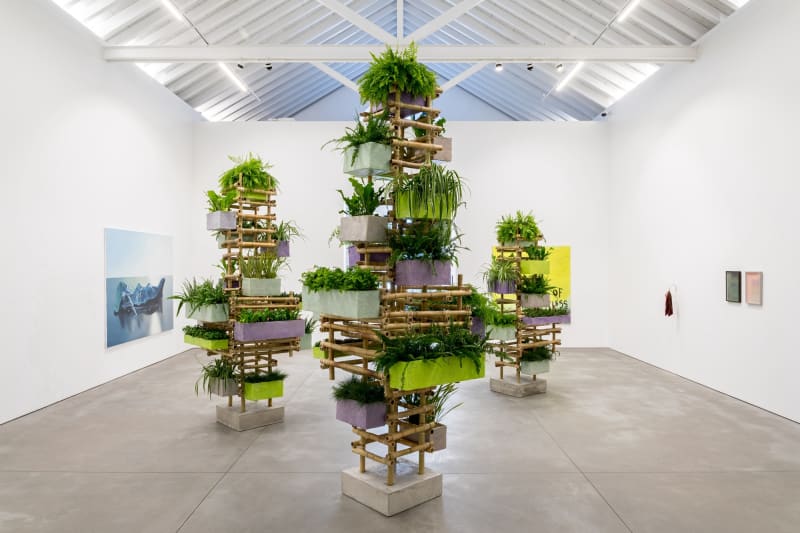Handle with Care: Curated by Ana Cristina Cachola
Gabriel Abrantes | Vasco Araújo | Carla Filipe | Karlos Gil | Evy Jokhova | David Maljkovic | Ursula Mayer | Adrien Missika | Rivane Neuenschwander | Diana Policarpo | Alice dos Reis | Von Calhau! | Emily Wardill | Lawrence Weiner | Yonamine
It would be inconsiderate, even dangerous, not to carry out an immediate, earnest and detailed genealogy of care and caring. The practices associated with this noun, verb and adjective are surely one of the most valuable tools to act within the contemporary. Art has foreseen it long ago, and has often brought the theme to the fore by deploying specific strategies, such as giving an increased, renewed visibility to ancestral modes of caring which have been (irresponsibly) obliterated across time by autocratic discursive structures of power; creating the conditions for the survival and co-existence of fauna and flora by introducing inter-species collaboration as a constant in both thought and action; recognizing self-care as an essential form of being; mending the dynamics of invisibilization that have disregarded communities and modes of making, matters and materials, which are thereby excluded from the cartography of the world; preserving the diversity of signs – words, images, sounds – that have been forgotten or replaced by the normativity of broad-spectrum capitalism, which pervades the economic, social, cultural, environmental, scientific and technological spheres.
Handle with Care does not intend to be that genealogy, but rather to contribute to generate and establish it by convoking all the aforementioned strategies. At the same time, it problematizes contemporaneity as an era of intermittence, emerging and sudden disappearance. From almost immediate technological obsolescence to the rehabilitation of ancestral practices and forms, caring as methodology (also in the arts) is an action that allows for the transformation of the intermittent into the simultaneous, and of the invisible into the co-visible. To recognize the fragility of the world, of its places and of the beings that inhabit them is the crux of a caring predisposition.
In both form and content, Carla Filipe reminds us how fragile cities are, a statement that is a calling to care for them. This calling reverberates in all the works in this exhibition, which invoke and problematize the caring for body and soul (Alice dos Reis, Diana Policarpo and Karlos Gil), for nature and the natural (Adrien Missika, David Maljkovic, Rivane Neuenschwander and Ursula Mayer ), for such cultural tropes as laughter (Vasco Araújo), for the word (Lawrence Weiner), for the unlikely image (Gabriel Abrantes e Von Calhau!) and manual production (Evy Jokhova), or for the dynamics of visibility and invisibility (Emily Wardill and Yonamine). The works in this exhibition certainly accumulate layers of meaning and expand into critical complexity, but they share an empathic disposition that enables the future. The planted towers that make up Jardin d’Hiver, by Adrien Missika, are there to prove it – after the exhibition is over, they will be taken to the gallery’s outdoors space to grow in contact with the different elements.
Handle with Care insinuates itself as a mantra for longevity and benign survival. Caring is (and must be) transversal to human action, or time will destroy physical, affective and imagined space. To care is, therefore, political action and as political action it cannot but (still) be radical.
Ana Cristina Cachola
December 2021







